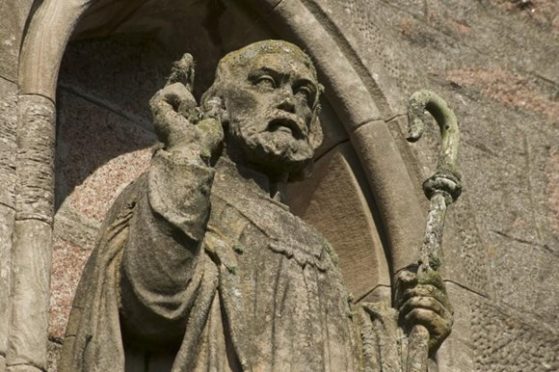
Historic Environment Scotland (HES) will celebrate the 1500th anniversary of the birth of St Columba with a new collection of poems.
Marking the life and legacy of the Irish Monk, the poetry collection has been written by writer in residence, Alex Aldred.
Widely believed to have brought Christianity to Scotland, the poems are inspired by Columba’s connection to the country and its historic environment.
As HES’s first commissioned writer in residence, Alex spent 20 weeks working with Scotland’s lead heritage body, exploring Columba’s relationship to some of its sites and the wider Scottish landscape, to create a body of work celebrating the patron saint of poetry and his historic links to the country.
In tandem with the collection, HES is also launching a new interactive digital map of the Columba linked locations which inspired Alex’s work.
This will enable visitors to trace the paths and key sites the Saint visited across Scotland, including Iona, the place which he is most strongly associated after arriving there and setting up a Christian monastery in 563 AD.
As part of the project, Alex will also lead a programme of digital creative writing and poetry workshops, which will be open to the public.
These workshops will focus on various aspects of Columba’s legacy to encourage people to think about heritage differently and enable them to use history as a tool of inspiration and connect it with their creativity.
Commenting on the project, Alex said: “I’ve had a tremendous time working on this project, and I’m very much looking forward to running the remaining workshops and releasing the portfolio to the public.
“As part of this project, HES has put together a digital map of Scotland, blending information on the history and significance of these various sites with excerpts from my poetry. This is one aspect of the celebration I am particularly excited for.
“It’s my hope that the collection, and the accompanying map, will provide readers with a fresh perspective on Columba and historic Scottish landmarks.”
Stephen Duncan, Director of Commercial and Tourism at HES said: “We were delighted to welcome Alex as our writer in residence to mark the 1500th anniversary of St Columbus with this exciting project. As the patron saint of poetry, it seems fitting to celebrate Columba with this wonderful new collection and the associated creative workshops.
“It’s also an opportunity for us to think about different methods of interpretation and the different meanings sites can have for different people and how they can resonate with people’s individual memories and experiences.
“We would like to thank Alex for his excellent work which presents a fitting tribute to such an iconic historical figure and his deep links to Scotland.”
For more information click here.

Enjoy the convenience of having The Sunday Post delivered as a digital ePaper straight to your smartphone, tablet or computer.
Subscribe for only £5.49 a month and enjoy all the benefits of the printed paper as a digital replica.
Subscribe